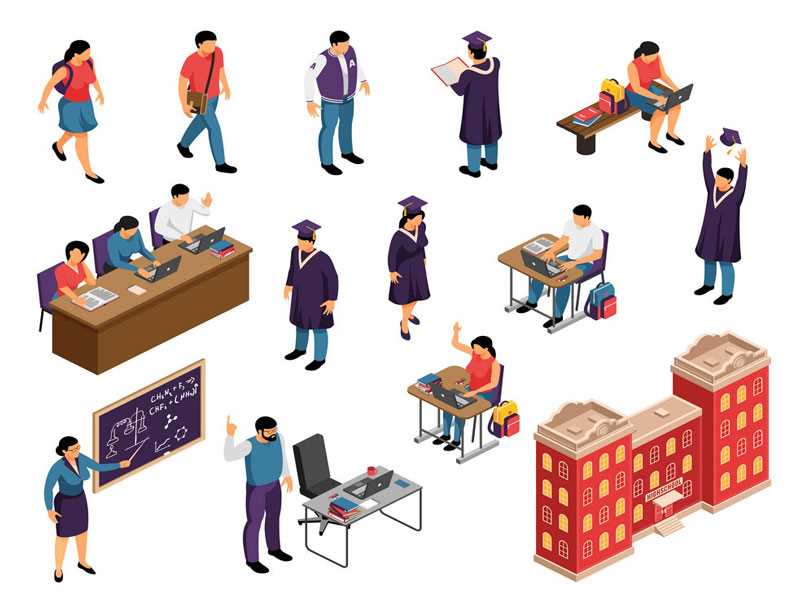Is the branch of engineering that is interested in the sciences that serve the art of mechanical design and the various production and manufacturing processes, and all that serves in the basic such as planning, design, manufacturing, assembly, testing, testing, analysis, processing and development to obtain the best value for less cost, which hold these matters from the economic and industrial organization .
Most of the official definitions of industrial engineering are stated as "the engineering field that is concerned with the use of mathematics and different sciences to design, study, analyze and develop systems that contain machines or equipment and materials to ensure the best performance of these systems at the lowest possible cost." Is this definition sufficient to understand the nature of the profession of industrial engineering and what distinguishes it from other engineering professions? Who reads this definition will say why do I need an industrial engineer to do this? Many other engineering majors, such as mechanical and electrical engineering, are interested in the study of machines and equipment, and economic sciences are concerned with the optimal use of human material resources, psychology and sociology are concerned with the human aspect. So why do I need an industrial engineer?
The industrial engineering profession has emerged to fill the gap between these different fields. If we look at the various engineering disciplines (which are applied sciences) we will find that they are interested in the design and work of machines and equipment without taking into account the nature of the people who will occupy this equipment and the costs of manufacturing and operating. On the other hand (the humanities: economics, management, etc.), they are concerned with the costs of operating the equipment and machines and how to exploit them optimally without technical knowledge about how they work and what they consist of. The industrial engineer appeared to cover the gap between applied engineering sciences and economic and social humanities.
Industrial engineering is an area of engineering and the nature of specialization that makes it a role in any industrial field (including human, materials and equipment) whether productive or service, from manufacturing companies that produce tangible goods such as food and engineering industries to companies and institutions that produce and provide services, Airports, airlines, hotels, banks, hospitals, etc. It is a public domain for achieving the objectives of management through the preparation of plans, good organization, quality preservation and application, and dealing with employees and others. It is possible for the industrial engineer to access administrative positions because of his work near the department and its tasks.
Interests Industrial Engineer
People
This subject makes industrial engineering somewhat separate from other disciplines or fields of engineering. The industrial engineer passes some lessons in psychology and sociology to help them understand topics such as human management, and such studies help them understand how to deal with these issues. Another area of interest for industrial engineers is to determine how many workers or people are needed? Is this work or job suitable for a human being? Is the process safe? What level of payment should be awarded for this work? Does work require more training for employees? Is there good communication between management and staff?
Labor force needs
To understand the needs of the labor force, the industrial engineer must understand in a great way the study of time, the study of movement (movement of workers and others). The company's policy in the development of business performance models is one choice.
Study of movement
Each action or process can be divided into essential work elements, and the Gilbertian family has found that these movements 17. The time required to complete each movement does not change. The rules used in studying the movement try to help the person or worker move balanced and synchronized. Example: The foot pedal should only be used when the worker is seated. Also, the working environment or workers must be suitable and good for work efficiency. For example, tools must be installed for removal. Another example: the surfaces and work chairs must be changeable or change to the height of the operator to remove the pressure to keep the company as a competitor to continue to increase production capacity and also reduce the cost. Industrial engineering comes with new improvements and development each year.
Study time
Without a specific standard, companies will find it difficult to define a term known as lead-time on their products. Industrial engineering provides a standard or a fair standard for each process. It is estimated that 12% of the total cost of the company comes from direct employment and 43% of the cost comes from the price or cost of the material and the remaining 45% goes to the overhead. The metrics will be set for each part or thing in the company not only the processes carried out by direct employment, industrial engineering will also be involved in the analysis and development of standards for office occupancy as well. A good time for study will be taken to put in the calculations unavoidable delays, fatigue and others. Time wasted or wasted as an example: in the search for tools will not be placed in the final criteria. The expectation will be based on the fact that the place of work will be designed to be suitable for work and will be free from any manifestations of waste. By setting effective standards, the company can determine whether the workforce is suitable for next year. Prior to establishing standards, the company must be aware of the current capacity and needs for additional assistance.
Human factors
Human factors are concerned with the study of human beings and their interaction with products, equipment, installations, procedures and the environment used in work and in daily life. Human factor engineering is the only one that focuses on humans (rather than on technical engineering like other engineering departments) and how things design affects people. The engineering of human factors tries to change the things people use and the environment in which they live, to be capable of human needs.
Compensation
From the point of view of the company they want to reduce the amount of money given to employees. This goal is often against the other objective of management - productivity. Employee productivity is directly related to its cash yield. There are some plans that have been developed so that you can balance productivity and cost. Industrial engineering will help the company to analyze their current situation and will often be responsible for proposing an appropriate or appropriate plan.
Training
Workers need to be properly trained. Standards are developed by people who are used to work and also by people who have excelled in the skills required to perform the work. In a competitive market, employees become higher in value, but if their training is not in line with them, the company's most important and valuable asset is workers and employees. There are new processes and methods developed. It is the responsibility of industrial engineering to help ensure that a good and appropriate degree of training has been carried out.
Turkey's distinguished universities in the field of industrial engineering
Istanbul Bilgi University
- • University of Sabanga
- • Tan Bach University (formerly Kimar Borghaz)
- • Istanbul University of Eden
- • Istanbul University is famous
- • University of Uzegin
- • Izmir Economic University
- • University of Beckett
- • University of Cadres Haas
- • University of Okan
- • University of Oscodar
- • Istanbul University College
- • University of Ischik








